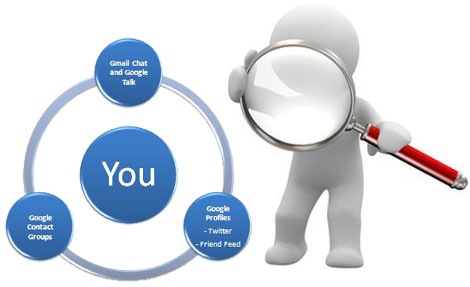What Google knows about you
by Tom GaraSource: http://blogs.wsj.com

By: Tom Gara
Source: http://blogs.wsj.com/
Let’s run through a little thought experiment.
Imagine there’s a list somewhere that contains every single webpage you have visited in the last five years. It also has everything you have ever searched for, every address you looked up on Google GOOG +0.26% Maps, every email you sent, every chat message, every YouTube video you watched. Each entry is time-stamped, so it’s clear exactly, down to the minute, when all of this was done.
Now imagine that list is all searchable. And imagine it’s on a clean, easy-to-use website. With all that imagined, can you think of a way a hacker, with access to this, could use it against you?
And once you’ve imagined all that, go over to google.com/dashboard, and see it all become reality.
For a piece complementing today’s story on Google and privacy by the WSJ’s Amir Efrati, I took a deep dive into Google Dashboard, a kind of Grand Central Terminus for all the information the company has stored on you. It’s a truly amazing amount, especially if, like me, you have been a heavy Gmail user since its launch in 2004. As long as you are logged into Gmail, or any other Google account, the company isn’t just keeping track of how you use its own service — it’s noting every site you visit on the web.
Here’s a snapshot of the kind of data we found on my Google Dashboard, put together as a graphic for today’s newspaper. It includes my 64,019 Google searches, and 134,966 Gmail conversations:
The idea that all of this data exists as a mass of ones and zeros deep in a server farm in California, being studied by disinterested robots to serve up better search results and more relevant ads, is something most of us can process in the abstract.
But the fact that it is all viewable right now, on a user-friendly Web page complete with its own search service (yes, you can run Google searches on your own web history), is something else entirely. For example, I searched for every website I’ve ever visited containing the word “octopus.” And yes, the results were wonderful.
Of course, if somebody else managed to access my Google Dashboard — and the chances of this happening are well above zero — they could search for things far less innocent than an eight-tentacled sea creature. The bad possibilities seem endless, from digital blackmail to much deeper forms of identity theft.
For example, how many people with even marginally public profiles, or aspirations for public office, would happily hand over a few hundred dollars in virtual ransom money to a hacker who agreed not to dump our entire web browsing history online and publicize it?
And how many husbands or wives would pay more to prevent a significant other from getting a package of edited highlights in the mail? Perhaps an address frequently searched for on Google Maps, or visited with a location-enabled Android phone? Any bosses out there who might stump up some cash to prevent their late night web-surfing habits from becoming an email sent to the entire office?
There’s another side to this, of course. In the long run our online histories will become one of our most cherished forms of memory, in some ways far more powerful than anything our brains are capable of. Gmail was one of the first Google services we signed into, and that was less than a decade ago. The Chrome browser has been around less than half as long. Our web histories are still young.
Give them another ten years and they will paint a picture of our past — of who we were — more detailed than any memory. Imagine thinking back to a specific day 20 years ago, and seeing the people we spoke to that day, what we spoke about, how they looked, the links they sent us, the things we said about them. We’ll be able to see the places we were on that day, and the photos we took on our phones, and the people we were with.
Maybe Google’s All Seeing Eye will eventually know things about us — patterns, gradual changes, small habits — that even we aren’t aware of. It might see the worst of us, but it could also see the better.
Philip K. Dick hinted at this in A Scanner Darkly, a 1977 novel well ahead of its time on matters of the surveillance state. Reflecting on the omnipresent surveillance devices that surrounded him, the protagonist wonders (see here for the beautifully-done movie version):
“What does a scanner see? he asked himself. I mean, really see? Into the head? Down into the heart? Does a passive infrared scanner like they used to use or a cube-type holo-scanner like they use these days, the latest thing, see into me— into us—clearly or darkly? I hope it does, he thought, see clearly, because I can’t any longer these days see into myself. I see only murk. Murk outside; murk inside. I hope, for everyone’s sake, the scanners do better. Because, he thought, if the scanner sees only darkly, the way I myself do, then we are cursed, cursed again and like we have been continually, and we’ll wind up dead this way, knowing very little and getting that little fragment wrong too.”
Here’s to hoping Google, and others, help us see clearly. They certainly have the data to do so — and this is based on what is being stored prior to the age of wearable computers in our glasses, self-driving cars, or the “internet of things”. As time goes on, our Google Dashboards will tell us more and more about who we are, and who we were.
http://muslimvillage.com/2013/08/10/42421/what-google-knows-about-you/


No comments:
Post a Comment